Marin Oyster Tour Part 1: Drake’s Bay Oysters
A couple weeks ago, I got an email from Elizabeth, owner of West Marin Food & Farm Tours, inviting me to attend an all-day oyster tasting tour in Marin.
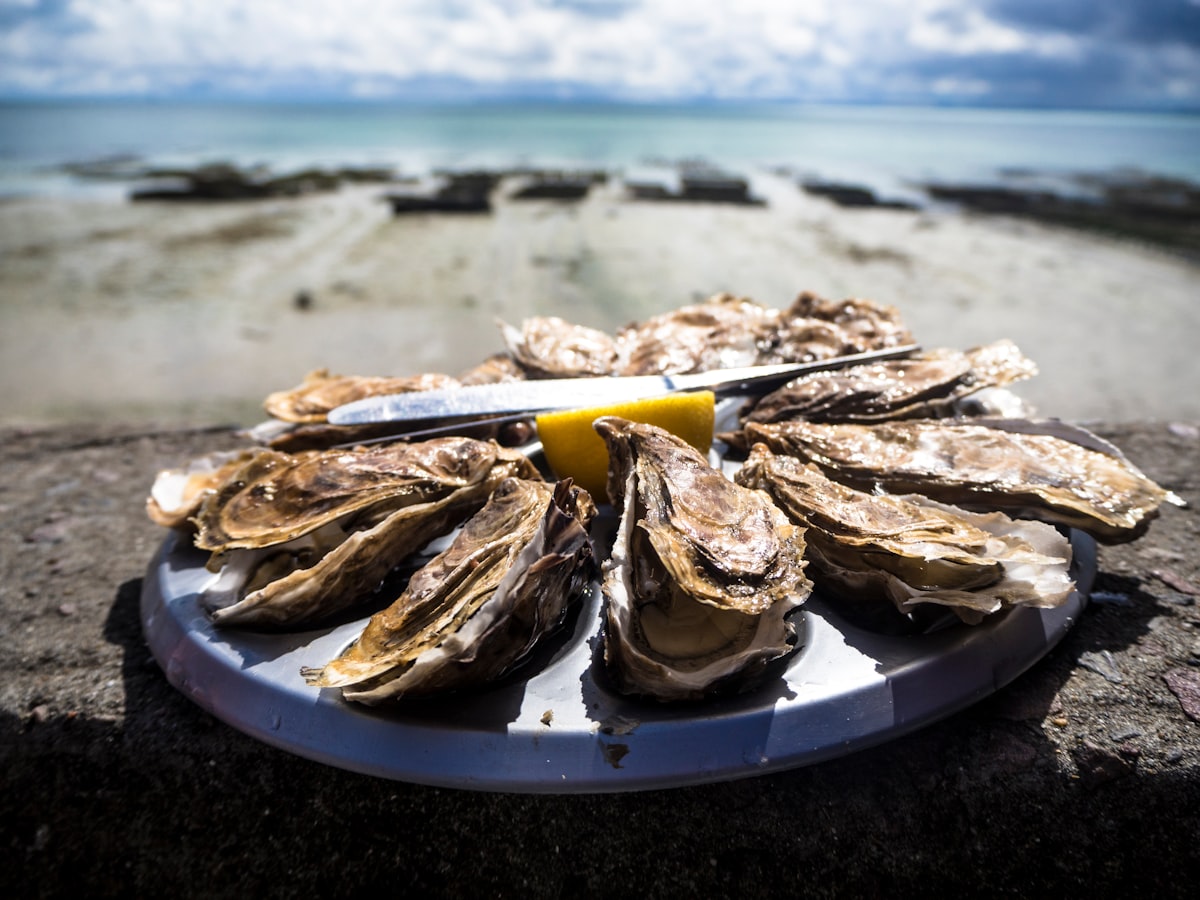
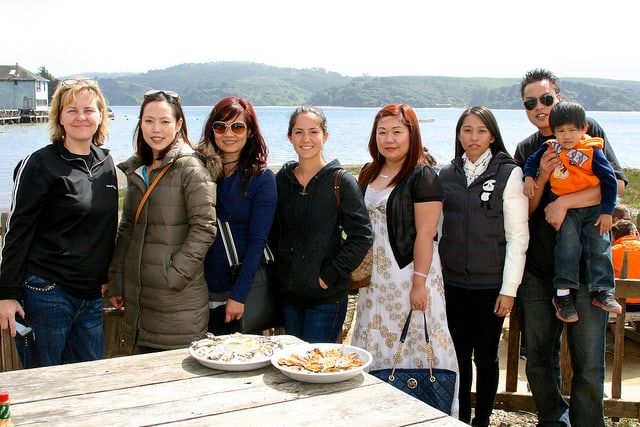
“No, I do not weep at the world — I am too busy sharpening my oyster knife. — Nora Zeale Hurston
A couple weeks ago, I got an email from Elizabeth, owner of West Marin Food & Farm Tours, inviting me to attend an all-day oyster tasting tour in Marin.
Needless to say, I hopped on a plane immediately. 🙂
A day-long tour of 3 oyster farms? Fresh oysters, local cheese and bread and wine… this is my idea of a dream day!
And it was a dream day… in this series of 3 posts, I’ll share with you photos from Drake’s Bay Oyster Farm, Tomales Bay Oyster Company and Hog Island Oyster Company.
We met in the morning at Blackbird Coffee Shop in Inverness.
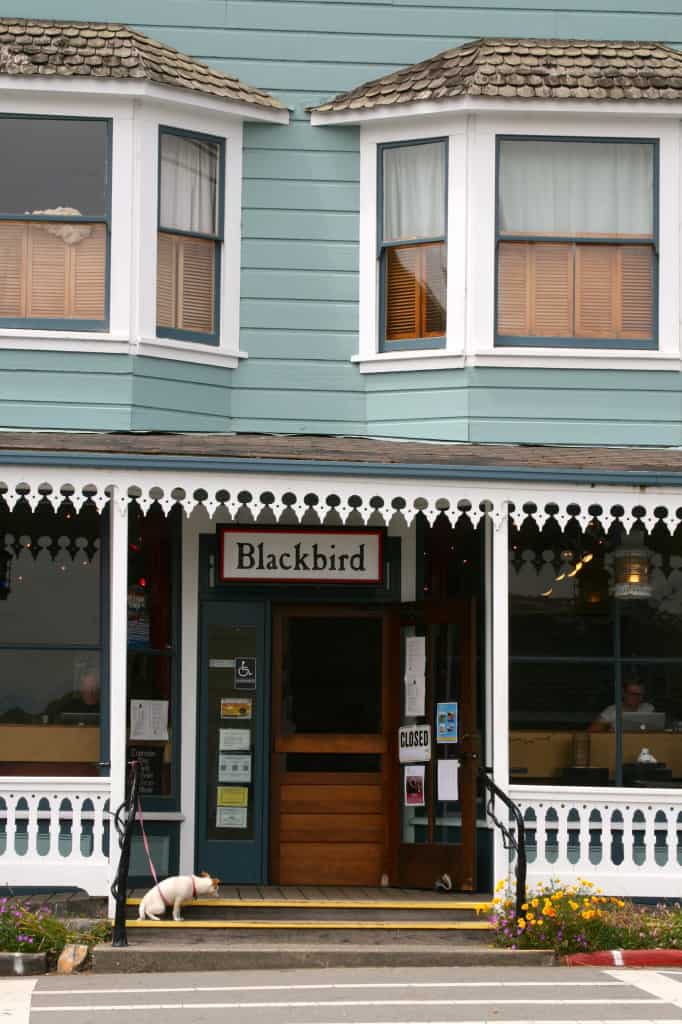
Elizabeth had coffee and pastries for us, and she told us all about the history of oyster farming in the area.
Then we headed over to our first stop of the day, Drake’s Bay Oyster Farm, which is the largest oyster producer in California.
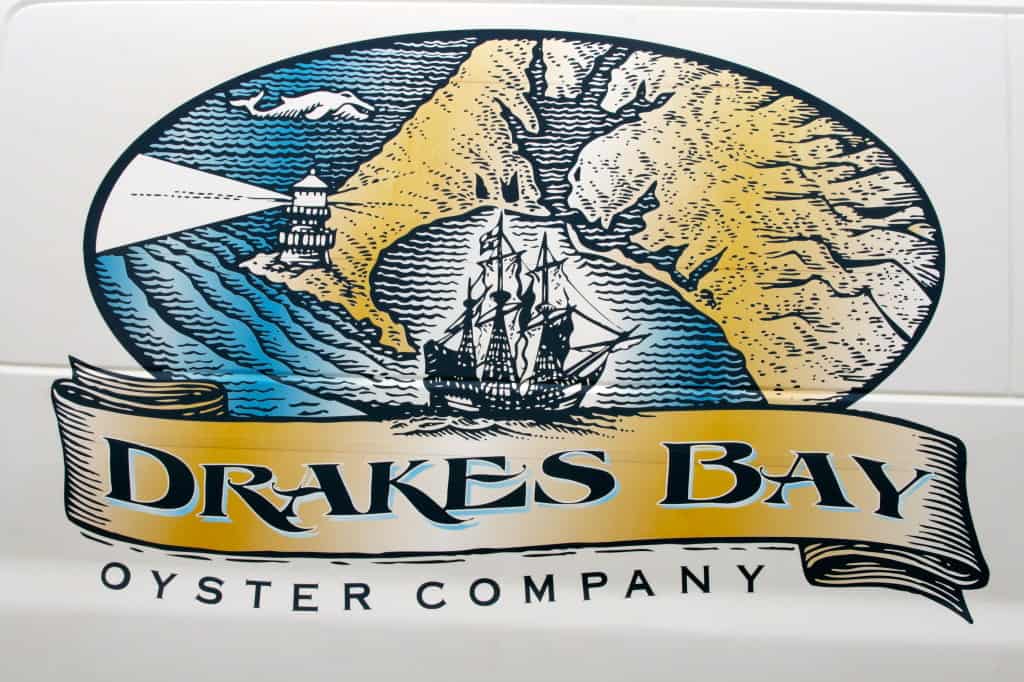
I’ve met the Lunnys, owners of Drake’s Bay, before, and I’m a big fan of their oysters. I’ve written about Drake’s Bay Oysters and the struggles they have been facing to stay open.
In a nutshell (or an oyster shell?), a bunch of well-meaning (but very wrong) environmentalists have decided to make it their mission to shut down Drake’s Bay Oysters.
They want what they call a “humanless landscape”. It’s really stupid because oysters actually clean the ocean and they have absolutely no evidence that the oyster farming has done one iota of damage to the environment.
And it’s a pity because Drake’s Bay is the LAST oyster cannery in California (we used to have a lot of canneries — John Steinbeck’s [easyazon-link asin=”014200068X” locale=”us”]Cannery Row[/easyazon-link]). It is also the only oyster hatchery in California — and apparently there’s a shortage of oyster seeds these days.
Oh and did I mention that Drake’s Bay Oysters produces 40% of the oysters in California? Putting them out of business will force us to import oysters — which is ridiculous because we can grow them right here in the state.
They had a hearing last week to plead their case to stay open. Here’s a picture of the Lunnys and some of their employees outside the courthouse:
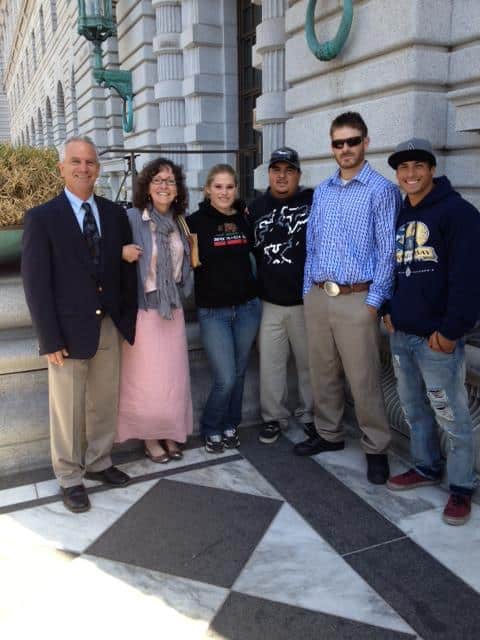
According to the Drake’s Bay Facebook page: “Arguments have concluded… The three-judge panel will issue their ruling in the coming weeks.”
Now we just have to wait… and pray that Drake’s Bay will be able to stay open.
You can read my article to learn more and visit their Facebook page to get up to speed with what’s going on.
So… that’s the background… let’s get on with the tour.
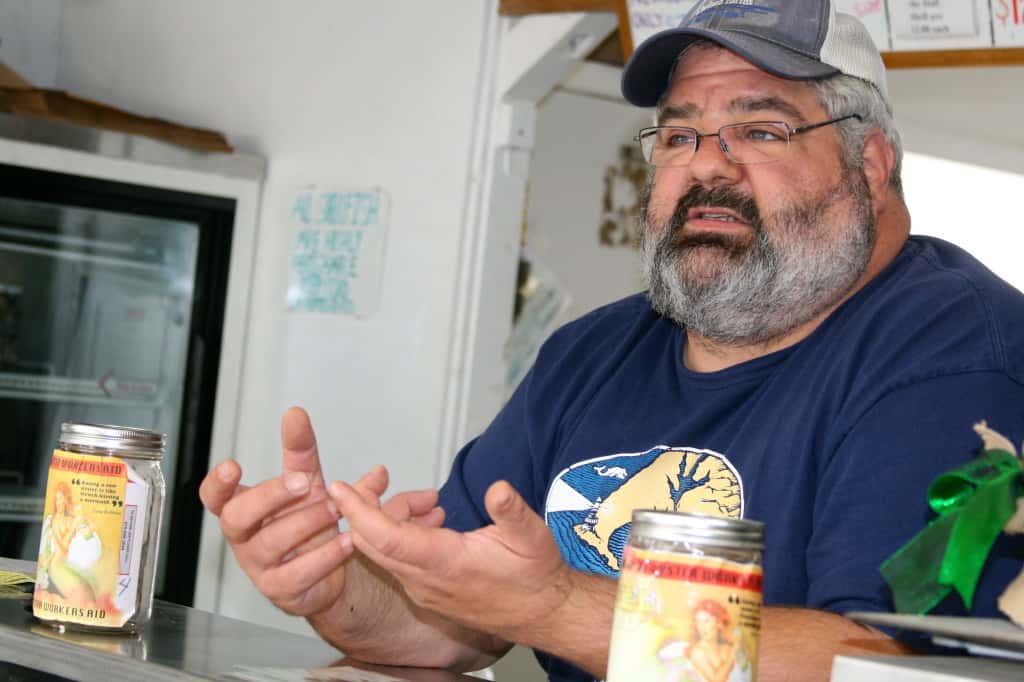
We learned a lot about how Drake’s Bay hatches and harvests their oysters.
For example, did you know oysters are hermaphrodites? I didn’t.

They actually use this stick method — they drill holes through the shells and put them on sticks. I’m pretty sure Drake’s is the only farm in California that uses this method of oyster farming.
They do this so the oysters will grow separately, in singles…

Instead of in clumps like this.
They make more money when they sell singles because restaurants want them for oysters on the half shell.
For the canned oysters (which they also sell a lot of), they harvest them in bags like these:
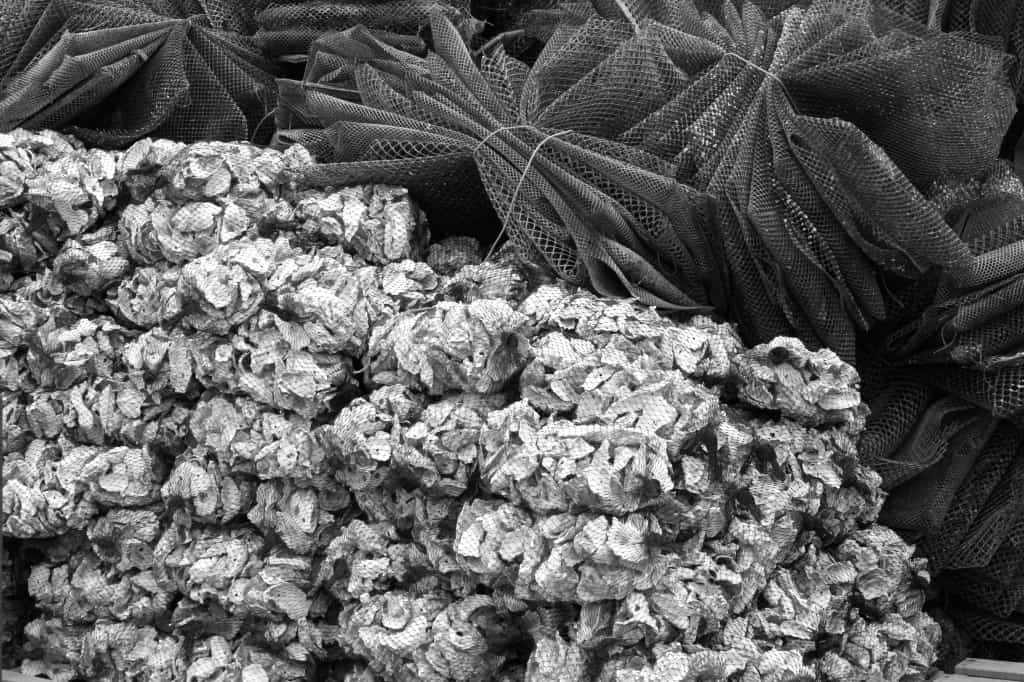
Apparently many restaurants just buy the canned oysters and they place them in the shells, instead of going to the trouble to shuck them. They just put the shells in the dishwasher and reuse them.
Our tour guide said he truly cannot taste the difference.
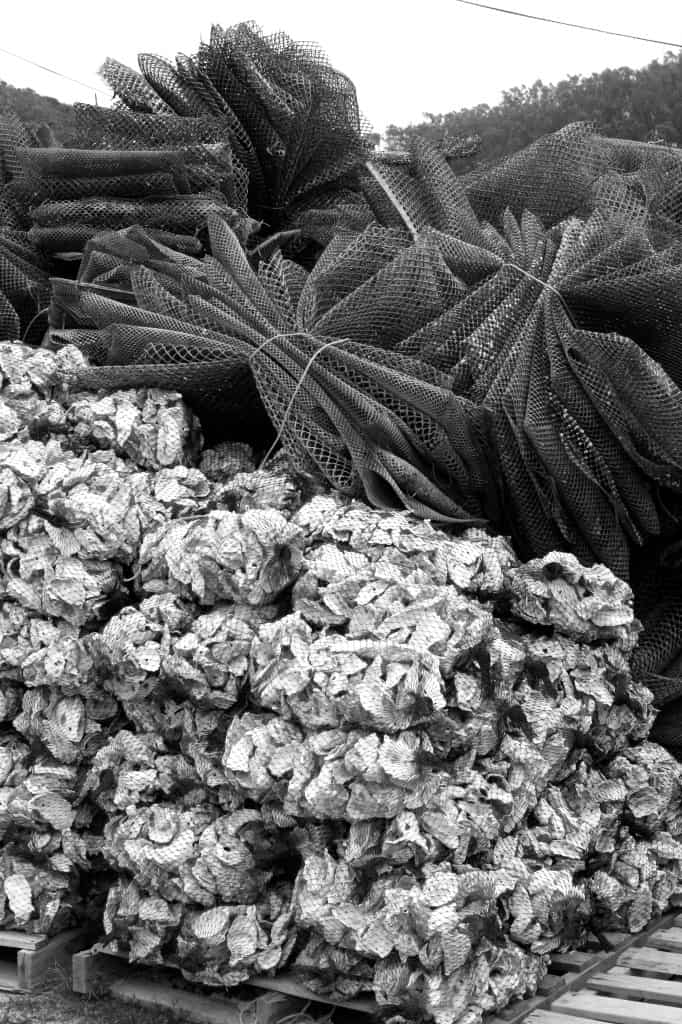
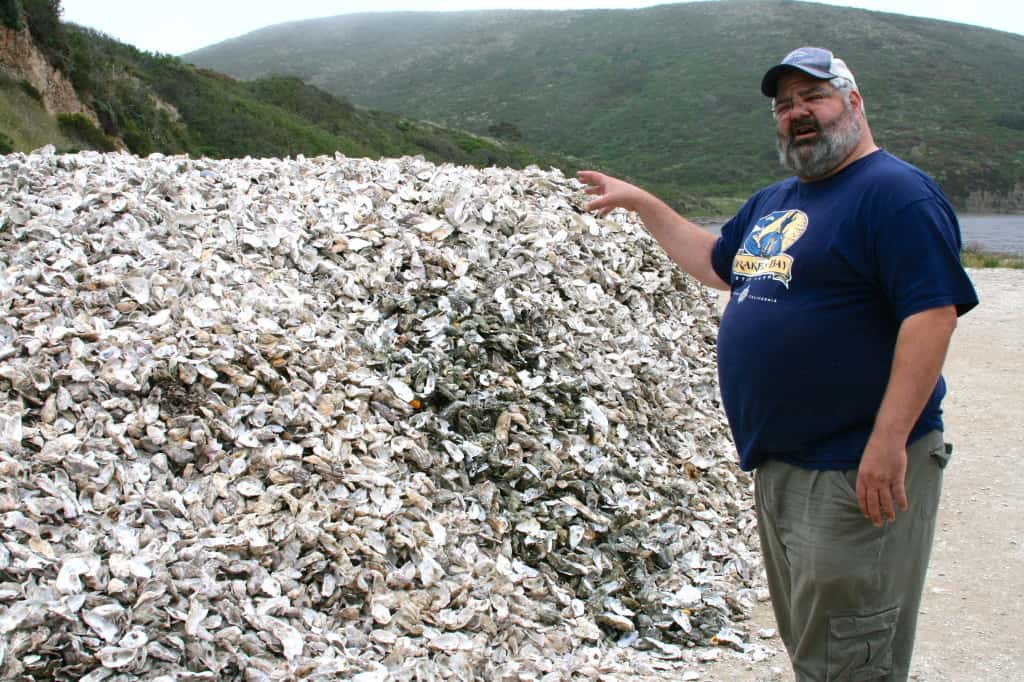
That’s a whole lot of oyster shells!
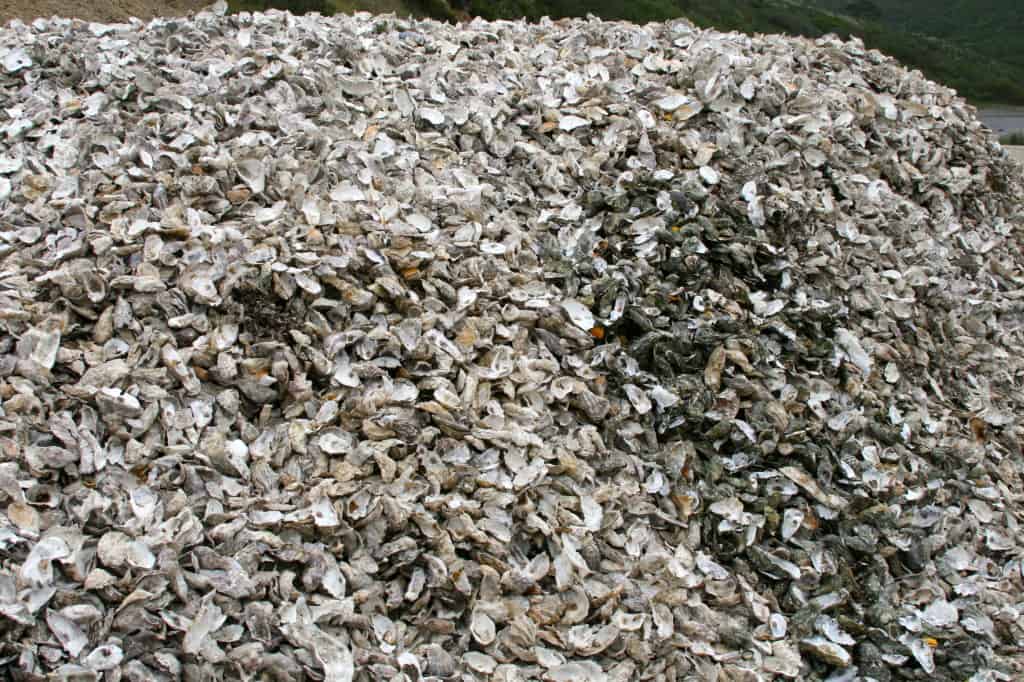
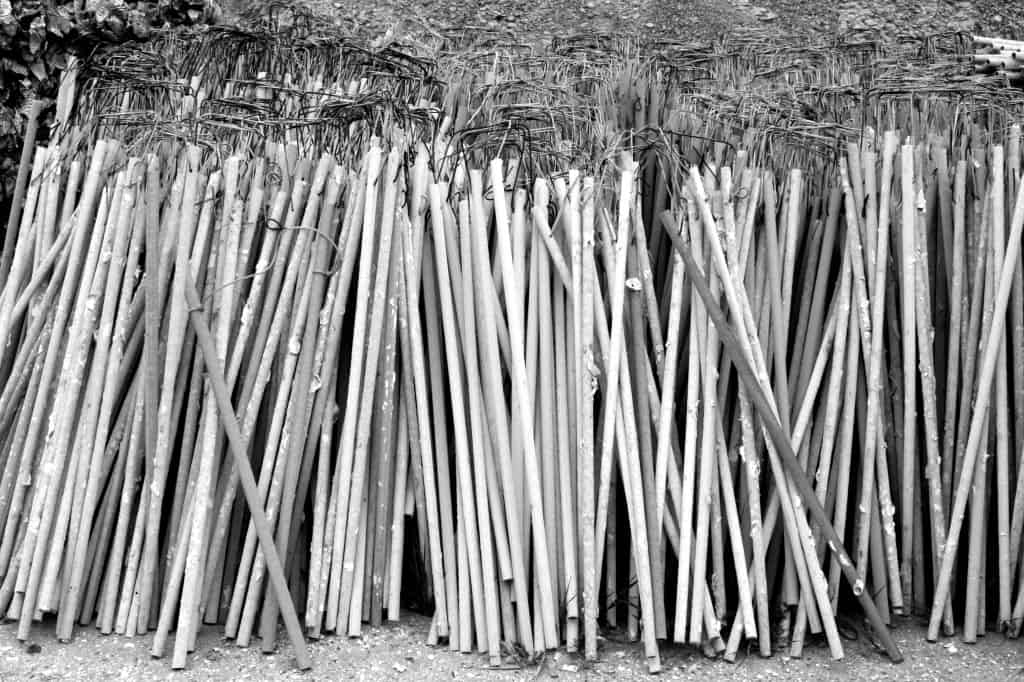
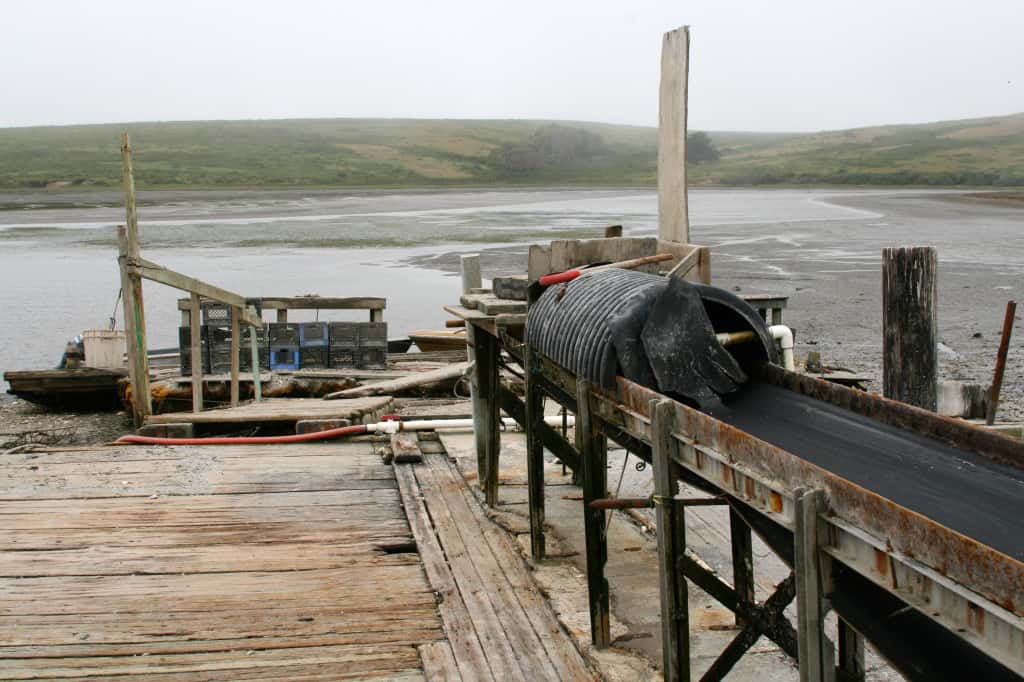
This is the assembly line where they process the oysters.
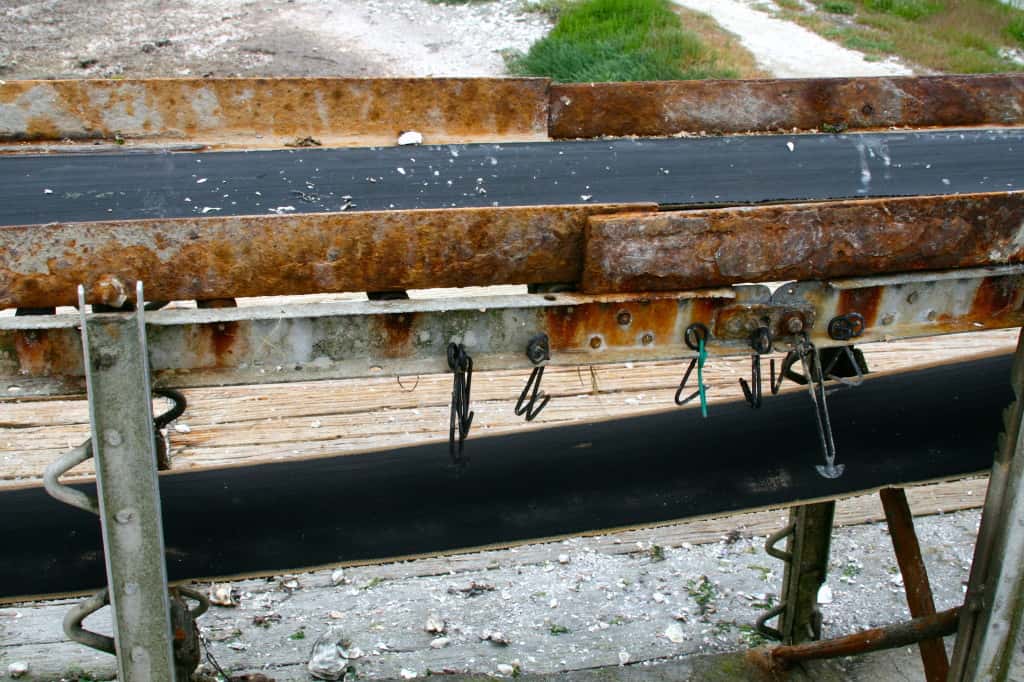
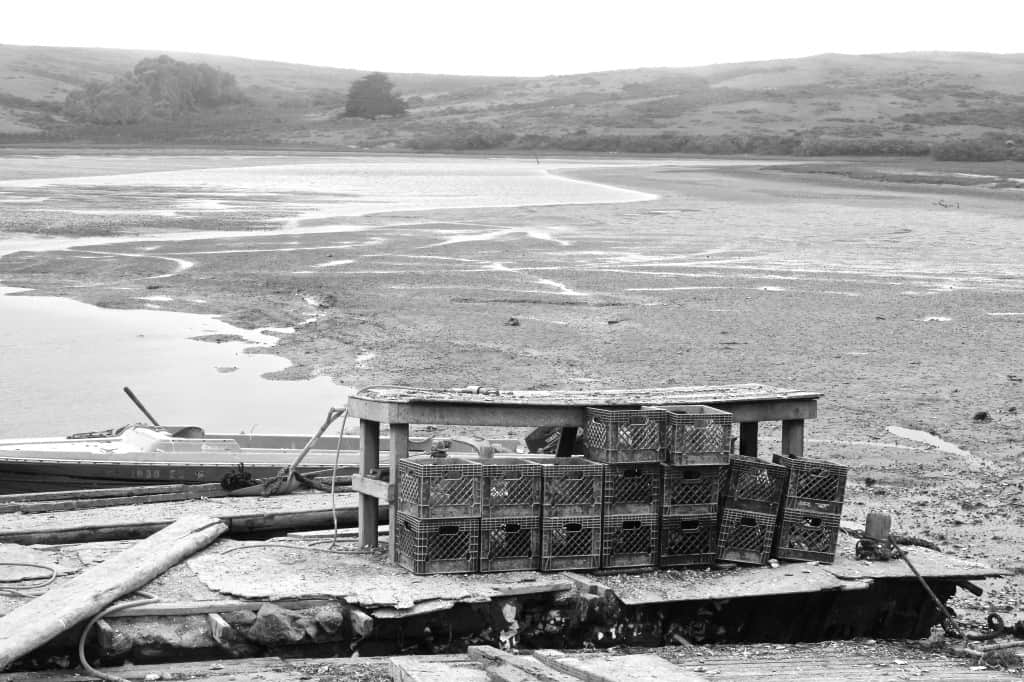
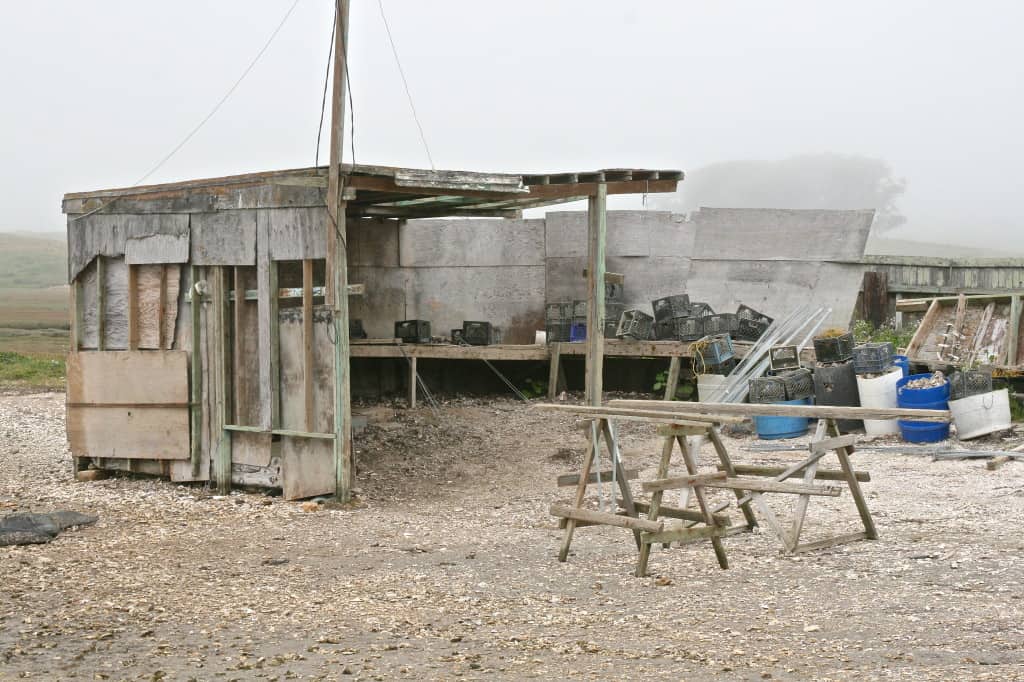
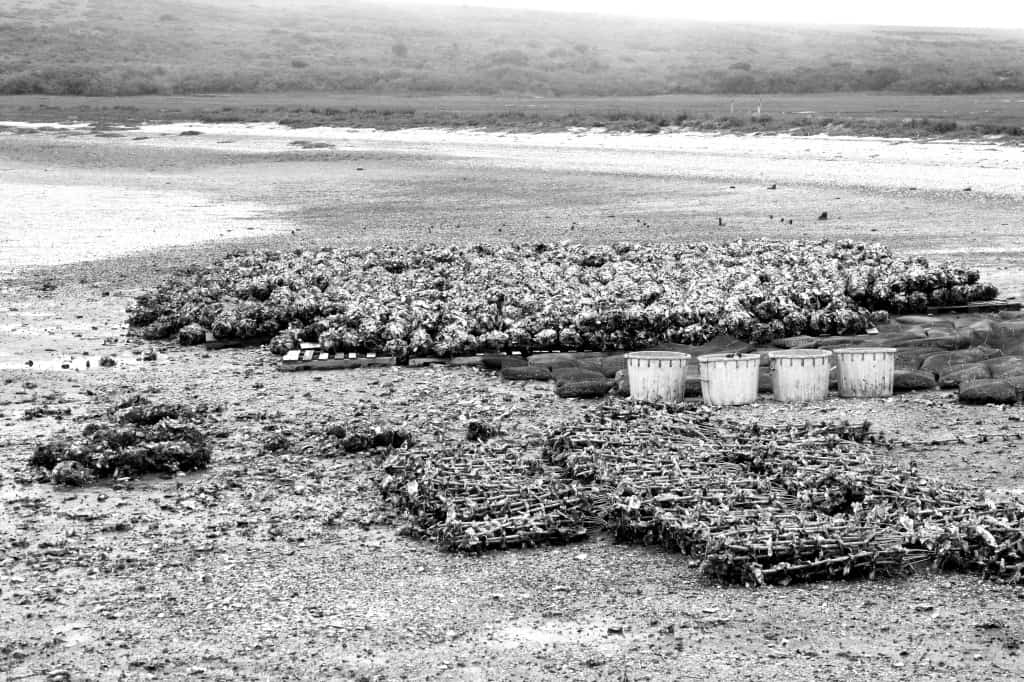
Everything at Drake’s Bay looks rather dilapidated (yet pretty in an ocean-weathered kind of way).
Elizabeth told us this is because they are not allowed to fix anything. They can’t even patch holes in the roof. Something about the fact that this is government land — I didn’t really understand it.
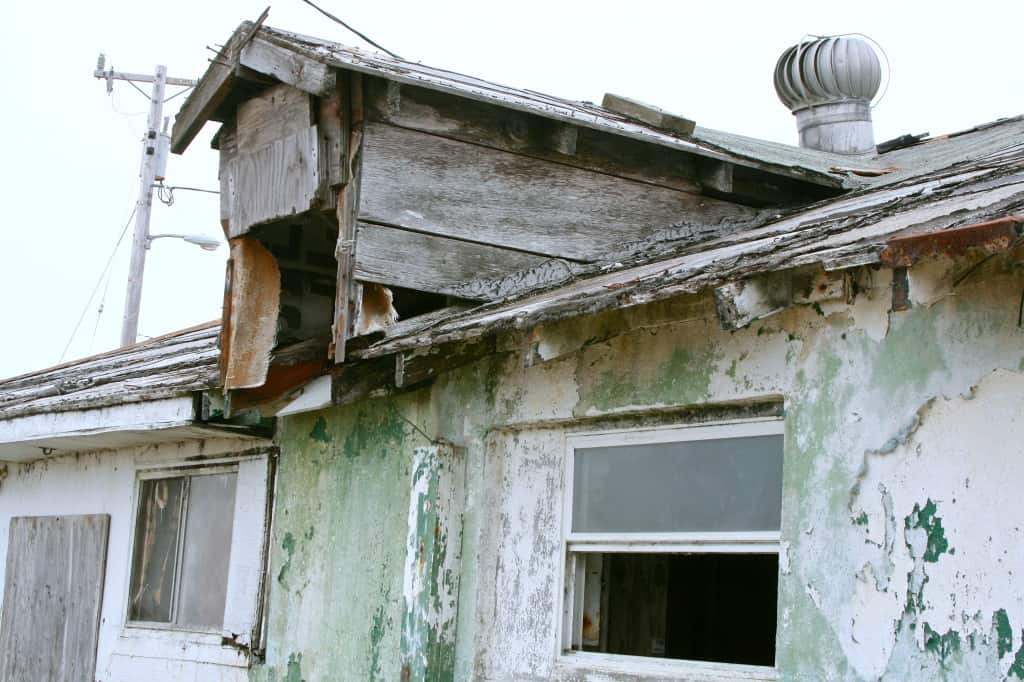
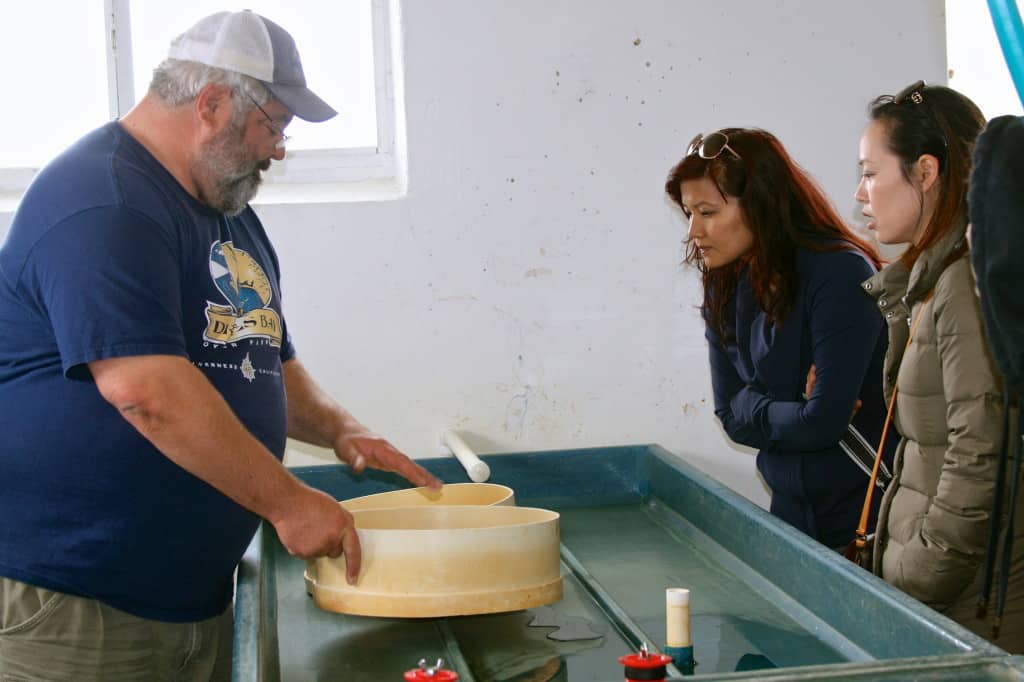
Explaining how they hatch baby oysters.
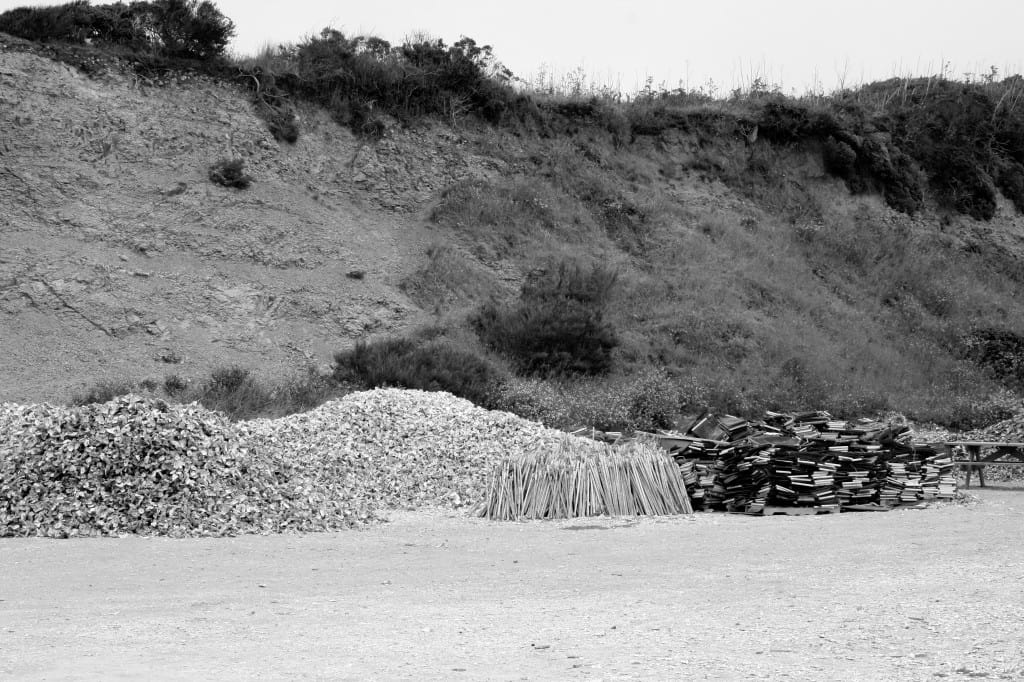
I still can’t get over those huge piles of shells.
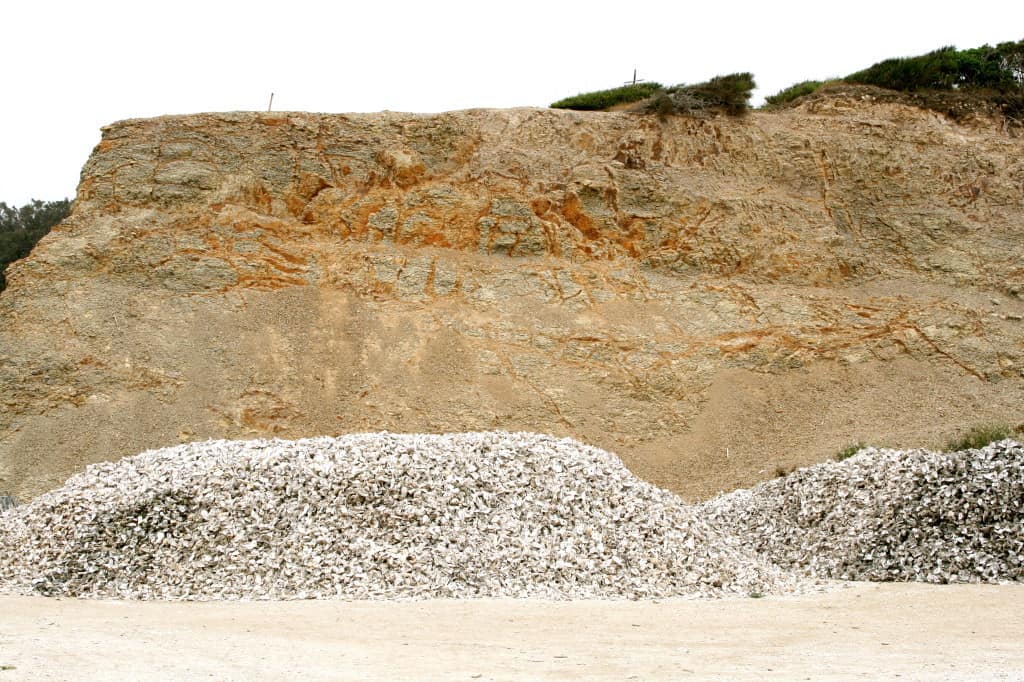
After we toured the farm, Elizabeth set up a lovely picnic lunch for us.
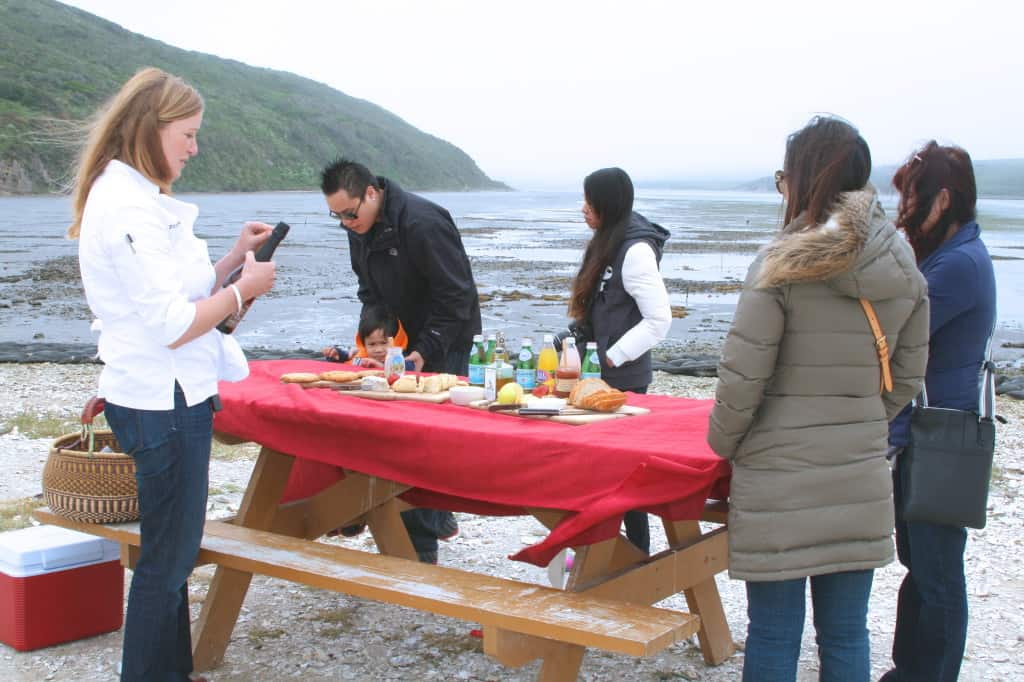
We had sparkling mead and cheese, both produced locally…
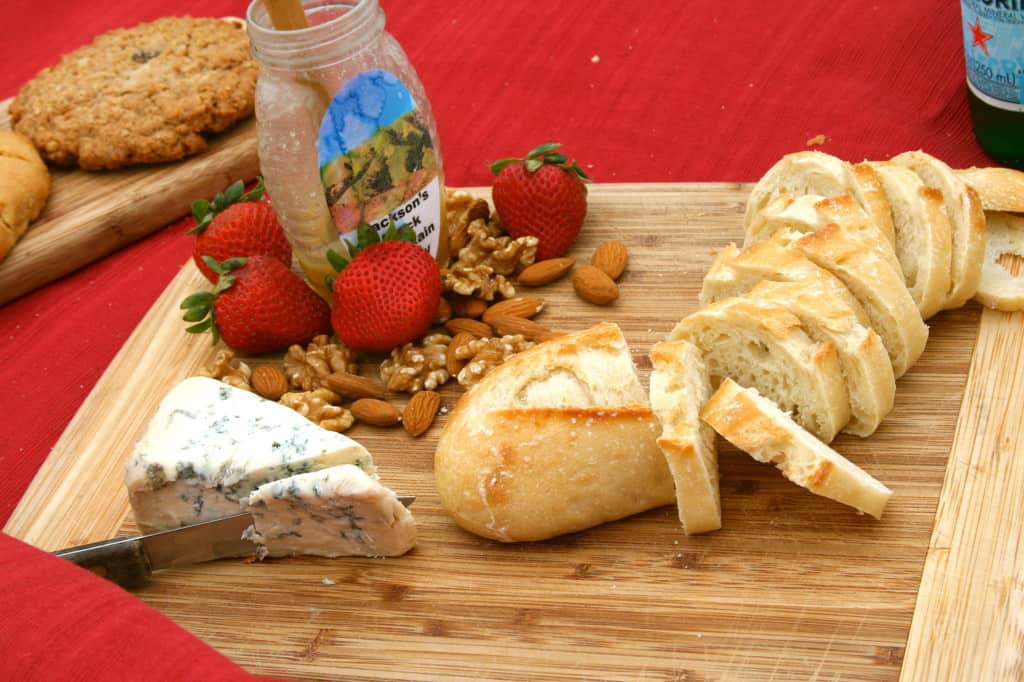
Local freshly-baked bread, and honey and olive oil, and freshly baked cookies.
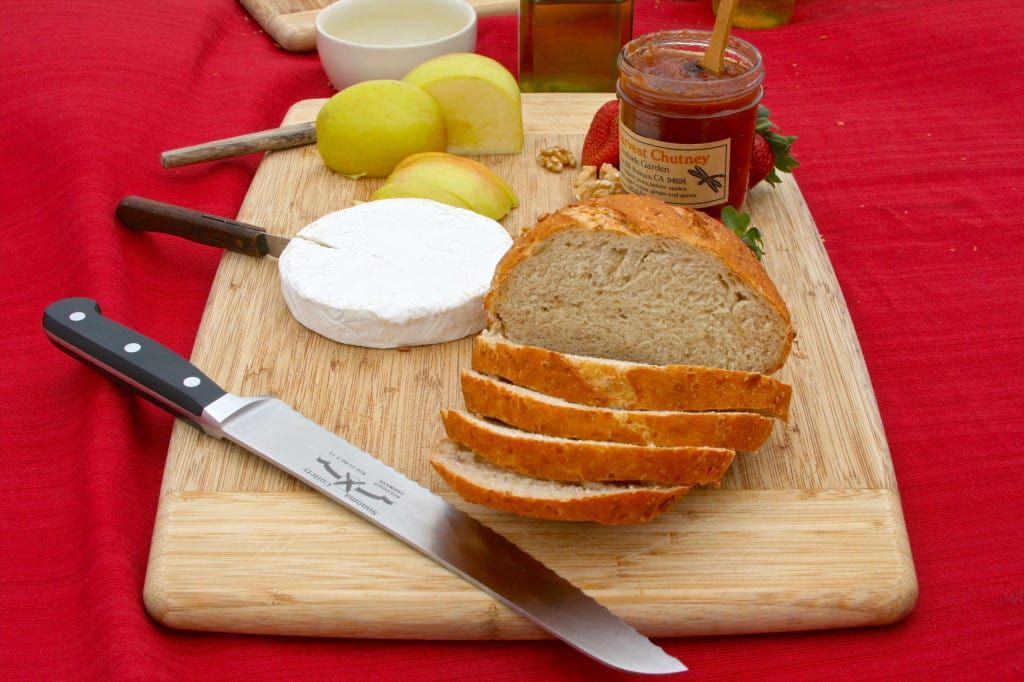
And of course, Drake’s Bay oysters, fresh from the ocean.
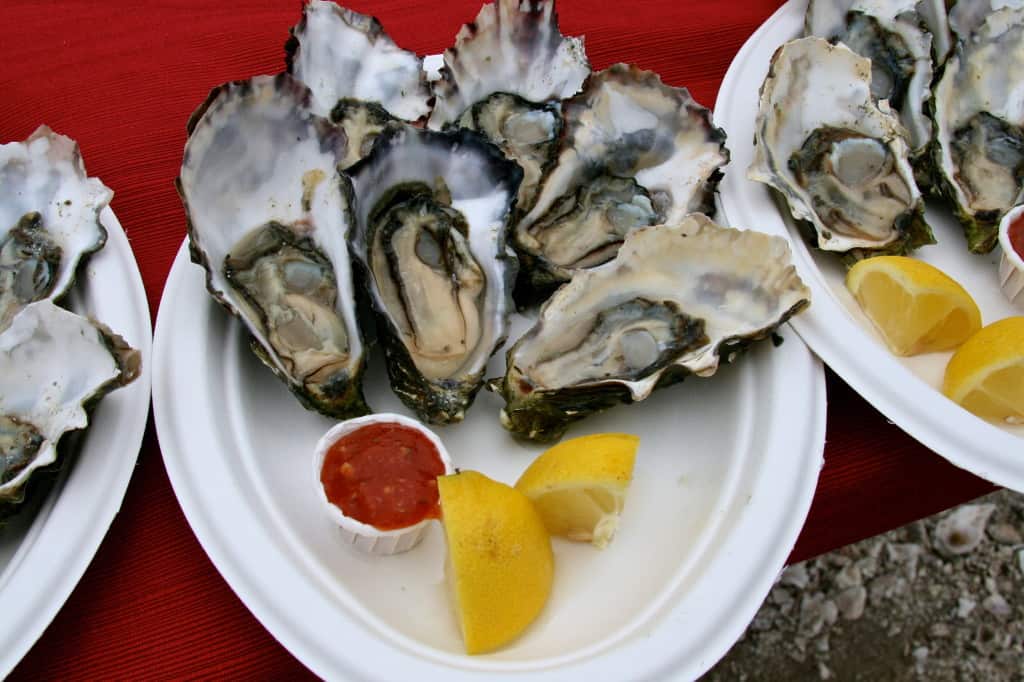
Tune in tomorrow for Part 2 of the Oyster Tour.



Comments ()